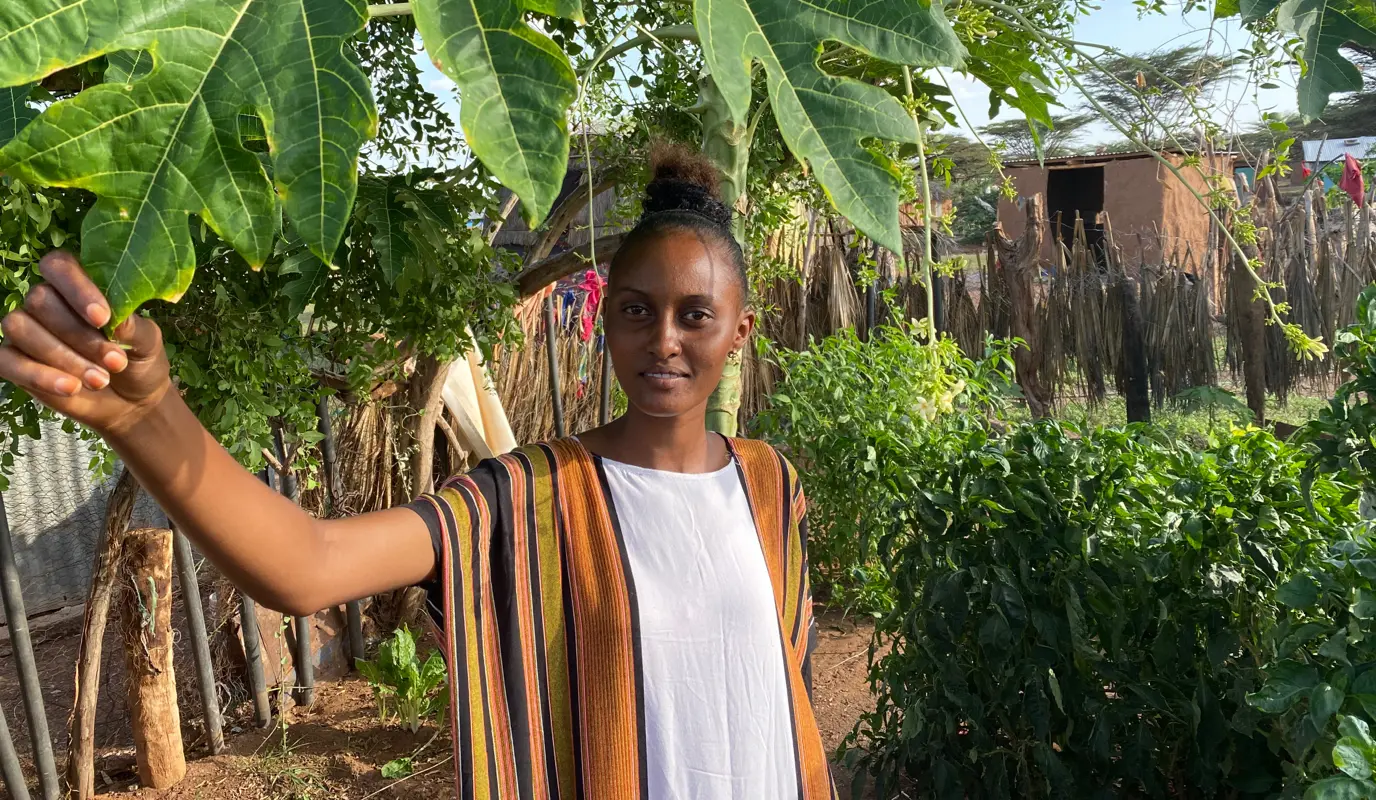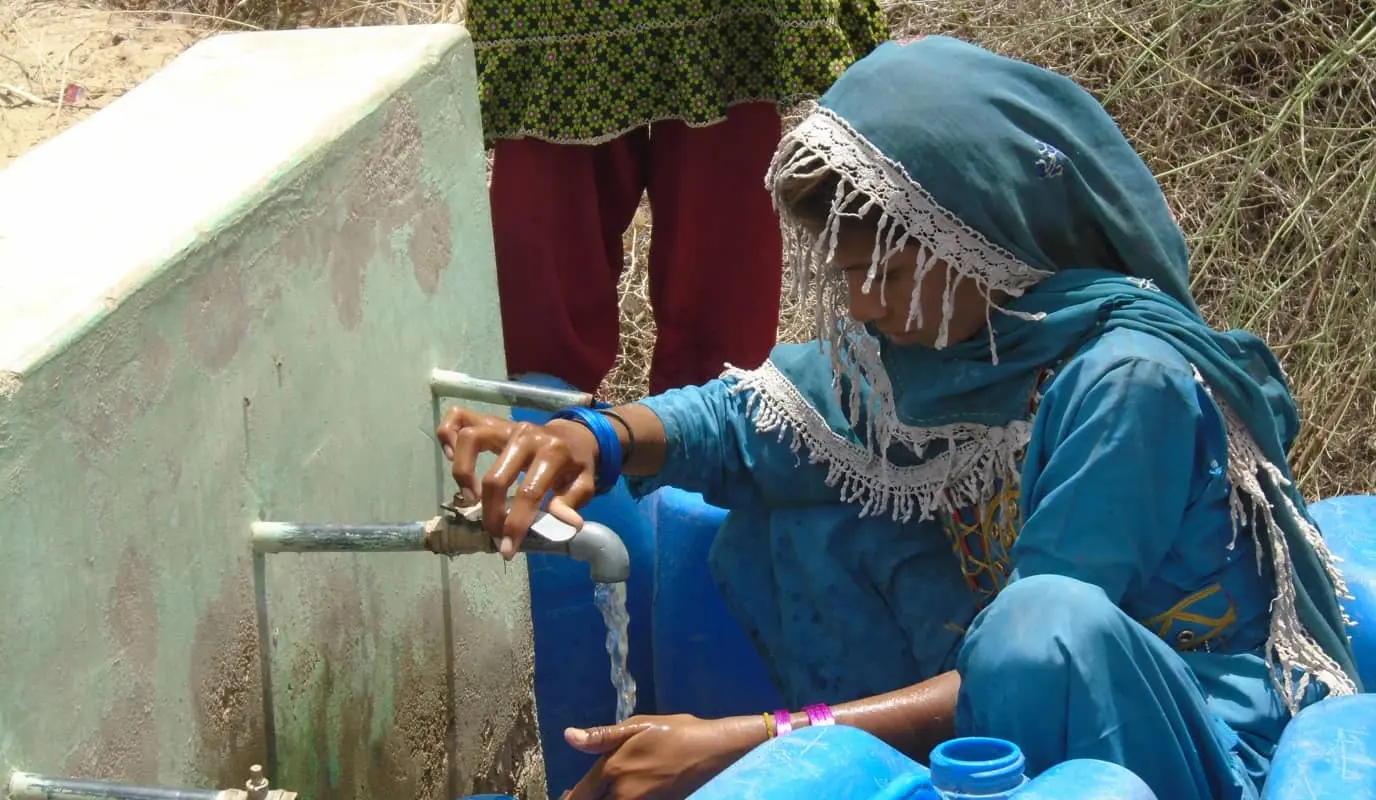News
10 Solutions to climate change that actually work
We need solutions bigger than any one person. But that doesn’t tell the whole story.
Read MoreYou may have read the scary statistic that most New Year’s resolutions don’t last through the end of January. It’s not that we aren’t built for change: Many of the millions of people Concern works with each year are able to transform their lives and circumstances through changes in habits, attitudes, and traditions. So what’s the issue?
Perhaps it’s a matter of making the right resolution. In many cases, having a resolution that goes beyond the gym or your bank account means that you can see the domino effects of your new habits. Here are nine ideas for New Year’s resolutions that give back.
Donating to an organization like Concern means that over 90% of your money will go wherever it is needed most, to the people who need it most. Our life-saving work tackles the root causes of poverty in 25 countries around the world, and even the smallest of donations can transform lives in any number of ways, including:
Beyond a one-time donation, however, setting up a recurring monthly donation in 2023 carries benefits beyond the sum of the parts. Our monthly supporters effectively subscribe to ending extreme poverty, allowing us to plan for the unexpected crises and emergencies that have increasingly become the rule rather than the exception. The best part? You can set it up once and then let it automatically process each month, and even donate directly from your paycheck (pre-tax!).
Money is important, but it’s not the only way you can give back with your new year’s resolution. Every year, 1/3 of all the food produced is wasted — that’s over 1 billion tons. Producing this wasted food also wastes other natural resources: It requires an amount of water equal to the annual flow of Russia’s Volga River, and creates more than 3 billion tons of greenhouse gasses.
Against large numbers, your own food waste may seem insignificant. But every step taken towards a more sustainable and equitable food system is a necessary step in the right direction. You also stand to save as much as 33% of what you spend on groceries if your own food waste is in line with the global average.

Climate change remains one of the defining challenges of our generation and we all still have the opportunity to address our own behavior and do our part to reach the Sustainable Development Goals (SDGs) by 2030. Small changes can make a big impact.
Eating less meat and more plants (which would also help you to eat more sustainably) is a good start. When it comes to environmentalism in the home, simple things like unplugging devices not in use can make a big difference. In the United States alone, so-called “vampire power” is responsible for draining up to $19 billion in energy every year. Ending overnight charging habits can not only fight against climate change, but it will also reduce your bills and reduce any fire risks due to faulty wires.
We have more ideas on how you can help stop climate change (often from your own living room). But you can also go beyond your own home. As COP27 has shown us, we will only be able to fully address the effects of climate change when governments and industries take steps towards reducing carbon footprints and honoring climate justice. You can vote with your wallet by supporting companies that are taking these measures, or lobby other businesses to do the same. You can also contact your congressional representatives to let them know that you are in support of local and national policies aimed at addressing the climate crisis and honoring agreements like the Paris Climate Accord and COP27.
Trying to understand and care about every issue in the world today is an impossibly tall order. Many of the crises facing the countries where we work are connected to centuries of history, and many of the current emergencies are linked to several interconnected factors.
Rather than trying to be an expert in everything — something not even Concern staff members attempt to do! — in 2023, pick one thing to learn more about. Do you care about the global refugee crisis? The conflict in Ukraine? If those topics even seem a bit daunting (which, to be fair, they are), you could even narrow your focus to, say, gender inequality in the DRC or the key causes of world hunger.
We have hundreds of resources on our website to help you understand the top-level facts about what we do and where we work, historical timelines of how certain crises came to be, in-depth reports on some of our initiatives, and more. And there’s always recommended reading at the bottom of each of our stories. You can select 12 now and bookmark them to read one resource each month, or be more ambitious and find a new piece on our site to read every week.
We often overlook the role that water, along with sanitation and hygiene services (collectively known as WASH), plays in our lives — not to mention the role that WASH plays in ending poverty.
Less than 1% of the world’s water supply is usable to us. The rest is saltwater, ice, or underground. And we have to make that <1% last for 7.9 billion people. The global water crisis is proof that we’ve come up dry: The latest reports from the WHO and UNICEF show that over hundreds of millions of people are affected by a lack of water for drinking and cleaning. As we’ve seen with the increase in cholera cases around the world in 2022, this lack of water can have life-threatening consequences.
We’re all guilty of wasting some water, whether it’s when we ignore dripping faucets, over-water our lawns, or ignore the free tap water served to us at a restaurant. Some of these may seem like minor inconveniences, but they add up: Speaking with VOX, water management expert Shafiqul Islam estimates that these minor annoyances can account for anywhere between 30 and 40% of a city’s lost water. The average family can waste 180 gallons per week, or 9,400 gallons per year, due to household leaks. Add this all up and we’re looking at roughly 900 billion gallons of water lost annually.
Water stewardship is a global responsibility, and we need every community in the world to help. You can start at home by conserving water use and fixing any leaks. You can also learn about some of the ways that Concern is addressing the global water crisis.

Perhaps it’s not the merriest way to start a new year, but there’s rarely a bad time to consider writing a will. And there are many benefits to doing so: You can ensure that your wishes are known, and that your loved ones are provided for in your absence. Providing a gift in your will is also an opportunity to create a lasting legacy that could benefit the lives of generations of people long into the future.
If you’ve been meaning to get started on your own will but don’t know where to start, Concern has partnered with FreeWill to offer you a free online will-writing service. With easy-to-follow steps, you can create a legacy in less than half an hour. It’s a simple way to protect the people and causes you care about most.
Gender inequality remains a problem in every country around the world, with one of the most persistent issues being the gender pay gap. You can help take a stand by supporting businesses owned and led by women. This can happen close to home, such as trading your Amazon book orders for a local, female-owned bookshop.
The website Women Owned can help you find businesses that meet almost any of your needs. You can also use Yelp — which, in 2019, introduced a women-owned badge for organizations — to find women-owned businesses.

Even your non-nonprofit hobbies — from going to a weekly quiz night to running a marathon each year to a once-in-a-lifetime skydiving trip — can give back. Check out Concern’s events in the US to find opportunities like online barre classes, our annual golf outings in New York and Chicago, our Spring Run, and our New York City Marathon team. Want to do your own thing? You can also fundraise for Concern with easy-to-use pages that make virtual donations simple and secure.

Speaking of the workplace, if you want to make giving back your full-time job, there are jobs available at Concern Worldwide US and internationally. Many of the vacancies at Concern don’t require advanced technical knowledge of certain areas of work (like humanitarian aid or irrigation). Backgrounds in business development, finance, marketing, development, IT, and more are all essential aspects of Concern’s team of over 4,700 people around the world. The different experiences we all bring to the table are what make us stronger as a global team of humanitarians.